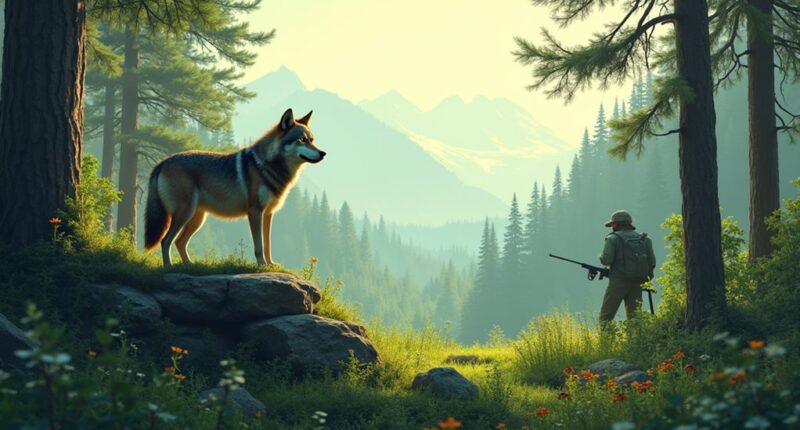The recent EU Council decision to downgrade wolf protections has sent shockwaves through conservation circles. Previously, wolves enjoyed strict protections, but now local management can include culling. This shift, backed by a majority of EU Member States and particularly Germany, favors agricultural interests over ecological health. Over 300 organizations and citizen protests highlight the backlash. Critics argue this undermines years of conservation efforts, posing significant risks to biodiversity. Curious about the broader implications? There’s more to uncover!
EU Council’s Decision Sparks Conservation Outcry
In a surprising twist that has conservationists howling, the EU Council has decided to downgrade the protection status of wolves, shifting them from “strictly protected” to simply “protected” under key European directives. This change, effective March 7, 2025, has left many scratching their heads, wondering why a species that has made such a remarkable comeback from the brink of extinction is now facing increased risk. The decision allows for more local management, including culling, which is like saying, “Hey, let’s just hit the undo button on decades of hard work!”
The majority of EU Member States backed this proposal, with Germany’s last-minute support acting like the final piece in a puzzle that many believed was complete. This proposal aims to facilitate wolf killing amid Member States’ requests, but at what cost?
Conservationists are sounding the alarm, arguing that this move undermines the wider EU biodiversity and nature protection commitments. Over 300 civil society organizations and hundreds of thousands of citizens opposed the downgrade, pointing out that scientific evidence supports stronger protections, not easier culling. It seems like a classic case of ignoring the nerds in lab coats — the ones who actually understand large carnivore management.
Under the previous “strictly protected” status, any deliberate killing, capturing, or trading of wolves was strictly off-limits. Now, Member States can grant hunting permits more freely, which some NGOs argue caters more to political whims and agricultural interests than ecological needs. It’s like appeasing the loudest voices at a dinner party while ignoring the folks who brought the salad. Effective conservation requires habitat protection strategies that maintain the ecological balance wolves provide as apex predators.
Political dynamics played a significant role here, with European Commission President Ursula von der Leyen‘s personal experiences influencing the push for change. This shift is particularly concerning as it reflects a broader trend of granting member states flexibility in wildlife management that could have lasting consequences on biodiversity.
The decision has ignited a fierce debate, as experts warn that culling isn’t a scientifically validated long-term solution.









